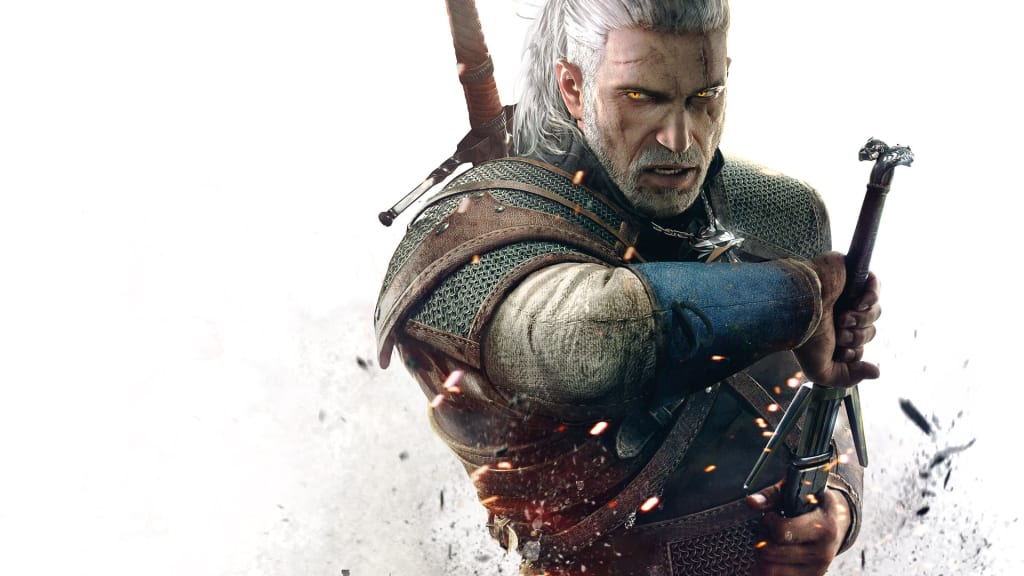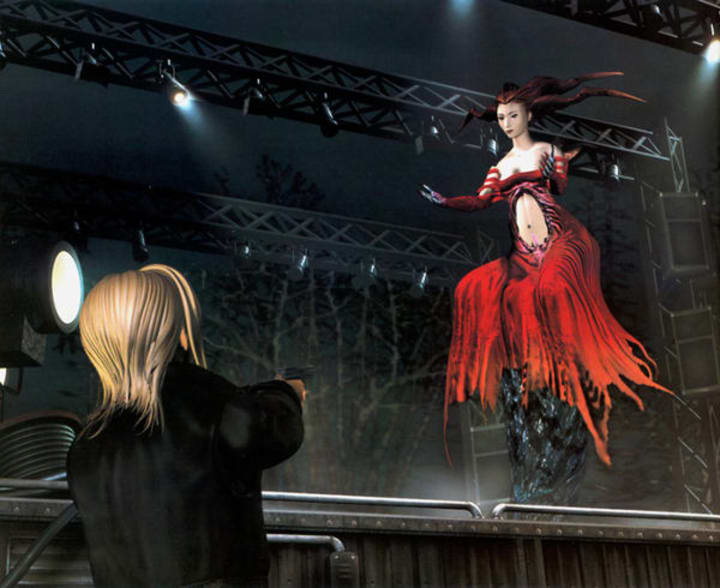From Page to Controller: 7 Games That Were Based on Literature
From 2010's 'Enslaved' to 'The Witcher' franchise, or even the survival horror 'Parasite Eve,' games have been riffing off novels for years.

Whether it's games like 2010's Enslaved, The Witcher franchise, or even the survival horror Parasite Eve, games have been riffing off novels for years. Recently, the most well known has been CD Projekt Red's The Witcher, based off a collection of short stories and novels from the early '90s.
To celebrate the announcement of The Witcher Netflix series, here's a list of seven games based on books.
7. Parasite Eve

Courtesy: Square Enix
Released in North America in September of 1998, video game publisher Square (now Square Enix) managed to release one of the creepiest games to ever land on the PlayStation home console. Serving as a sequel to the 1995 novel under the same name by pharmacologist Hideaki Sena, fans may know exactly what they're in for when they hear the name Parasite Eve and what was in store for them.
The game, echoing the book, plays upon biochemical horror of our bodies' own mitochondria revolting and transforming humanity into hideous and deformed creatures.
6. Enslaved: Odyssey to the West

Courtesy: Bandai Namco
Enslaved: Odyssey to the West had a small cult following in 2010 when it released on Xbox 360 and PlayStation 3. Many fans appraised the game for its story, character development, and rather exciting exploration based mechanics that they would use to explore the world about them. The game took players on the road of exploration as a rather warrior-like character, which mirrors the tale of the 16th century Ming Dynasty novel Journey to the West. The book tells the story of the Monkey King Sun Wukong, a mischievous and highly capable warrior, who takes a journey towards a fictionalized India with the monk Xuanzang (Triptaka in the English translations).
In the game, we see Xuanzang's name and gender changed to Trip as she is escorted by the playable hero, Monkey, who travels across the ruins of a post-apocalyptic New York City.
5. S.T.A.L.K.E.R.

Courtesy: GSC Game World
Released exclusively for PC by GSC Game World, the smash-hit series S.T.A.L.K.E.R. took fans by surprise due to its creative take on a modern nuclear wasteland and its approach to the catastrophic events of Chernobyl. The game is loosely based on Boris and Arkady Strugatsky's 1972 novel Roadside Panic. The novel follows the story of the games main protagonist Redrick "Red Schuhart", an experienced stalker whom has ventured into the Zone in order to find valuable artifacts he can survive off of.
Due to the nature of alien visits, the Zones are left riddled with mysterious and supernatural properties, which make them dangerous to enter. The game, meanwhile, recontextualizes the premise, setting the narrative in Chernobyl, where several disasters have piled atop each other. The irradiated wasteland is now teeming with mutants for players to riddle with bullets.
With a new #AssassinsCreed title expected to land this year, it's a perfect time to look at the literature that helped create the story behind the famed Assassin's Creed series, which took fans by storm 10 years ago. The inspiration? A Slovenian novel titled Alamut published in 1938. The books main lines can be seen throughout the Assassin's Creed series, "Nothing is an Absolute reality, all is permitted."
If you played the games, you know that the words are mimicked in the lines: "Nothing is true, everything is permitted," which serves as the link between both the book and the game. While the game is not a direct adaption of Alamut, the first title Assassin's Creed draws many parallels in the fascistic leaders and cult-like radical groups manipulating people to join their ranks. While recent AC titles have used far fewer overtones of radicalized groups, the original pays direct homage to Alamut's shocking charisma.
If you'd like to learn mor, check out Michelle Ehrhardt's article all about Alamut and Assassin's Creed over on Kill Screen.
3. Metro 2033

Courtesy: THQ
In 2005, Dmitry Glukhovsky released his survival horror novel Metro 2033 in Russia, taking place in a post-apocalyptic Moscow metro. Soon after, the world was granted the survival horror shooter by the same name of Metro 2033. Just like the book, the game takes place in a ruined and twisted Moscow, riddled by nuclear disaster; its inhabitants forced into the subway systems in oder to survive. Just like in the book, players take the role of the franchises protagonist Artyom, who doubles as one of the book's main protagonists.
For those that haven't had a chance, both the book, and the games were recently published in the United States with English translations and English audiobook editions.
2. BioShock

Courtesy: 2K Software
If you are familiar with frat bro republican politicians, you know all about Ayn Rand's oft-referenced Atlas Shrugged. The novel covers the ideals of objectivity and pure self-interest principles, and Rand's philosophy is often praised by certain wings of American fiscal policy. Ken Levine's BioShock series isn't an adaptation of Atlas Shrugged, instead it's more of a direct response and demonization of Rand's idealistic philosophies as taken to their most extreme and flawed conclusions.
Besides the numerous names that allude directly to Atlas Shrugged (BioShock's Andrew Ryan is named after Ayn Rand, The Fountainhead and Frank Fontaine, the echo'd line "Who is John Galt?" and "Who is Atlas?" in BioShock) the themes are directly apparent. The world's created in BioShock are the kinds that Rand's philosophy praises as utopian, but realized with the tragic flaws of a technology and a social order allowed to careen wildly off the rails. BioShock realizes Rand's ideal world as dystopian in practice, directly criticizing the infinite ways it could all come crashing down.
1. The Witcher

Courtesy: CD Projekt Red
Released in the early 1990s as a short story collection that first appeared in a Polish science-fiction and fantasy magazine, the story "Wiedźmin" ("The Witcher") is what sparked the international hit game series. Author Andrzej Sapkowski expanded the initial short stories into five full novelizations, all of which held an appreciated cult status until the The Witcher games sprang into the spotlight and brought renewed interest.
Luckily for Sapkowski, the games and books have done well enough that Netflix has picked the series up for a Netflix show.
About the Creator
Dustin Murphy
A video games journalist and Content Creator. He has been featured on sites such as AppTrigger and MoviePilot. He's the president and editor-in-chief of the independent news publisher Blast Away the Game Review.






Comments
There are no comments for this story
Be the first to respond and start the conversation.